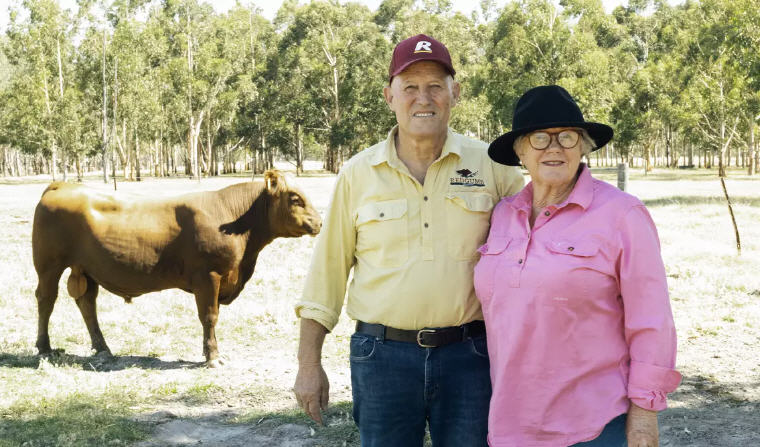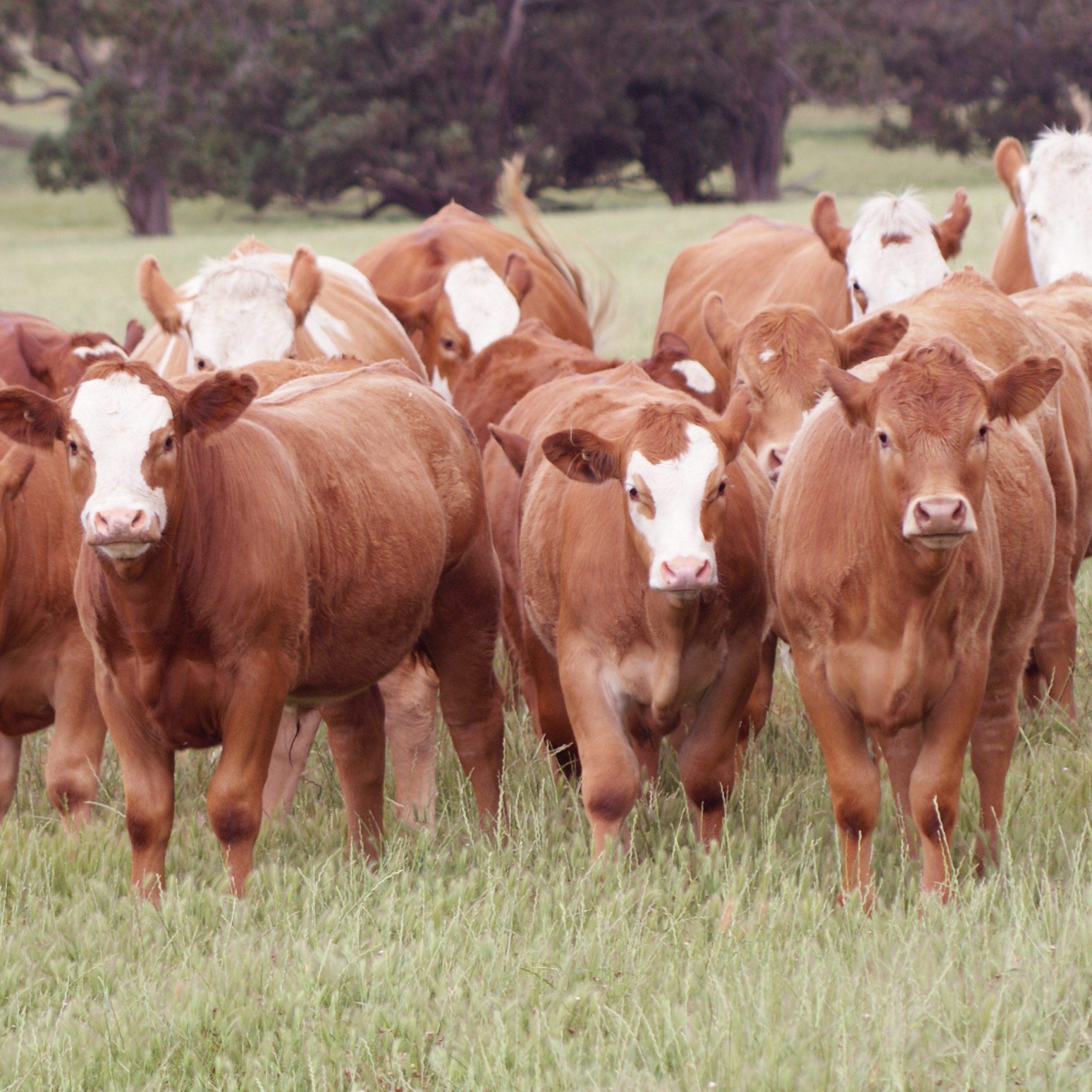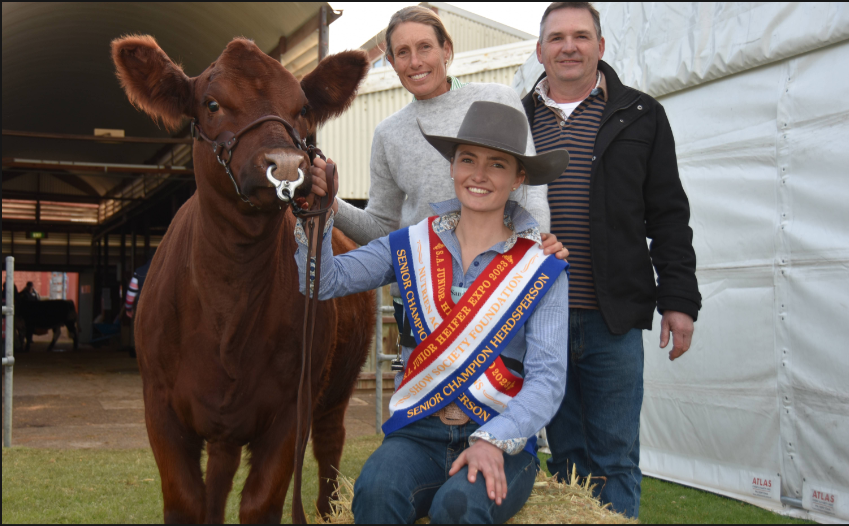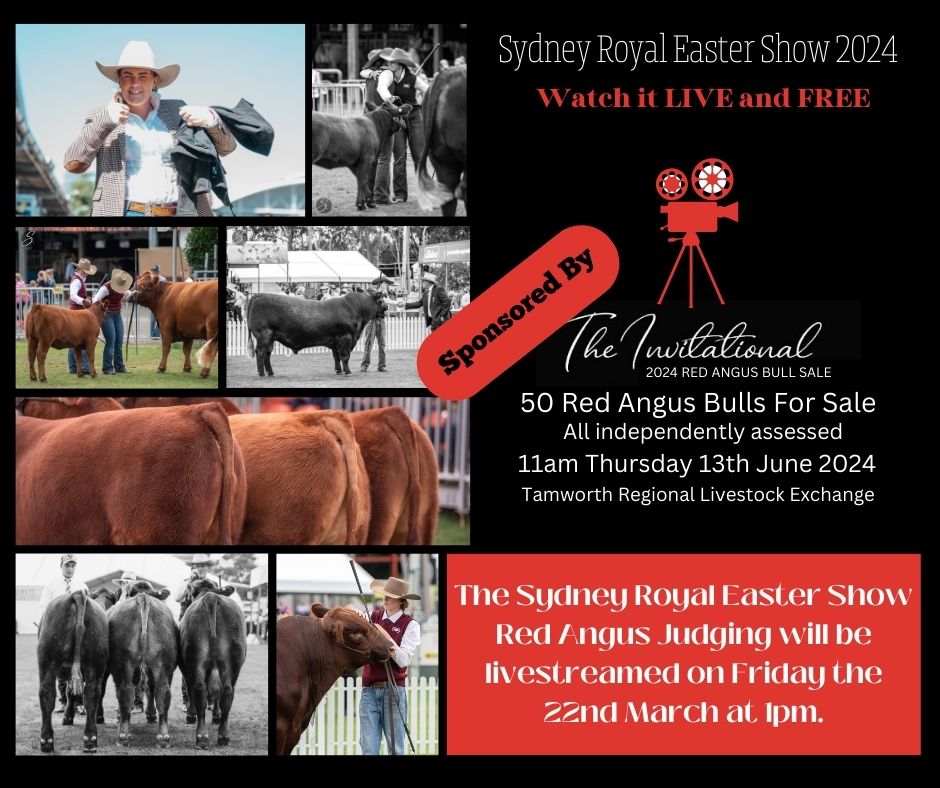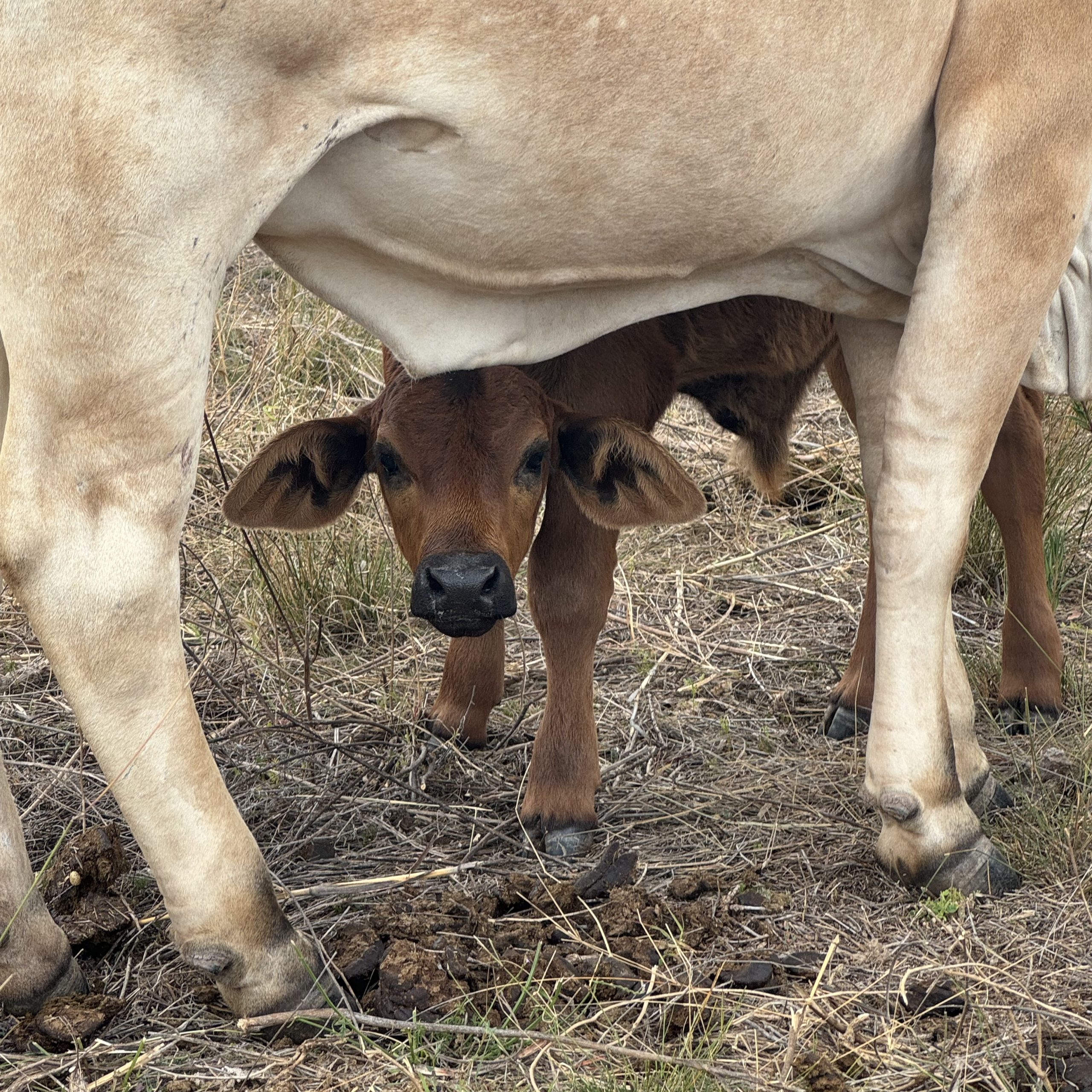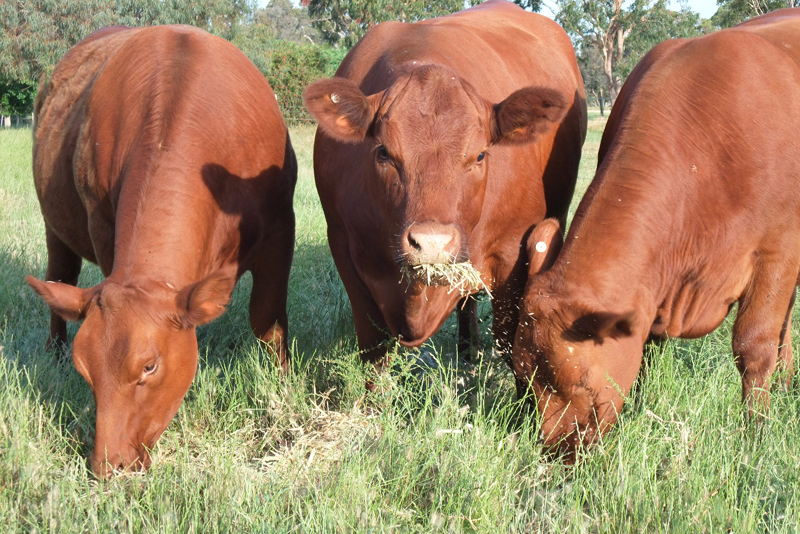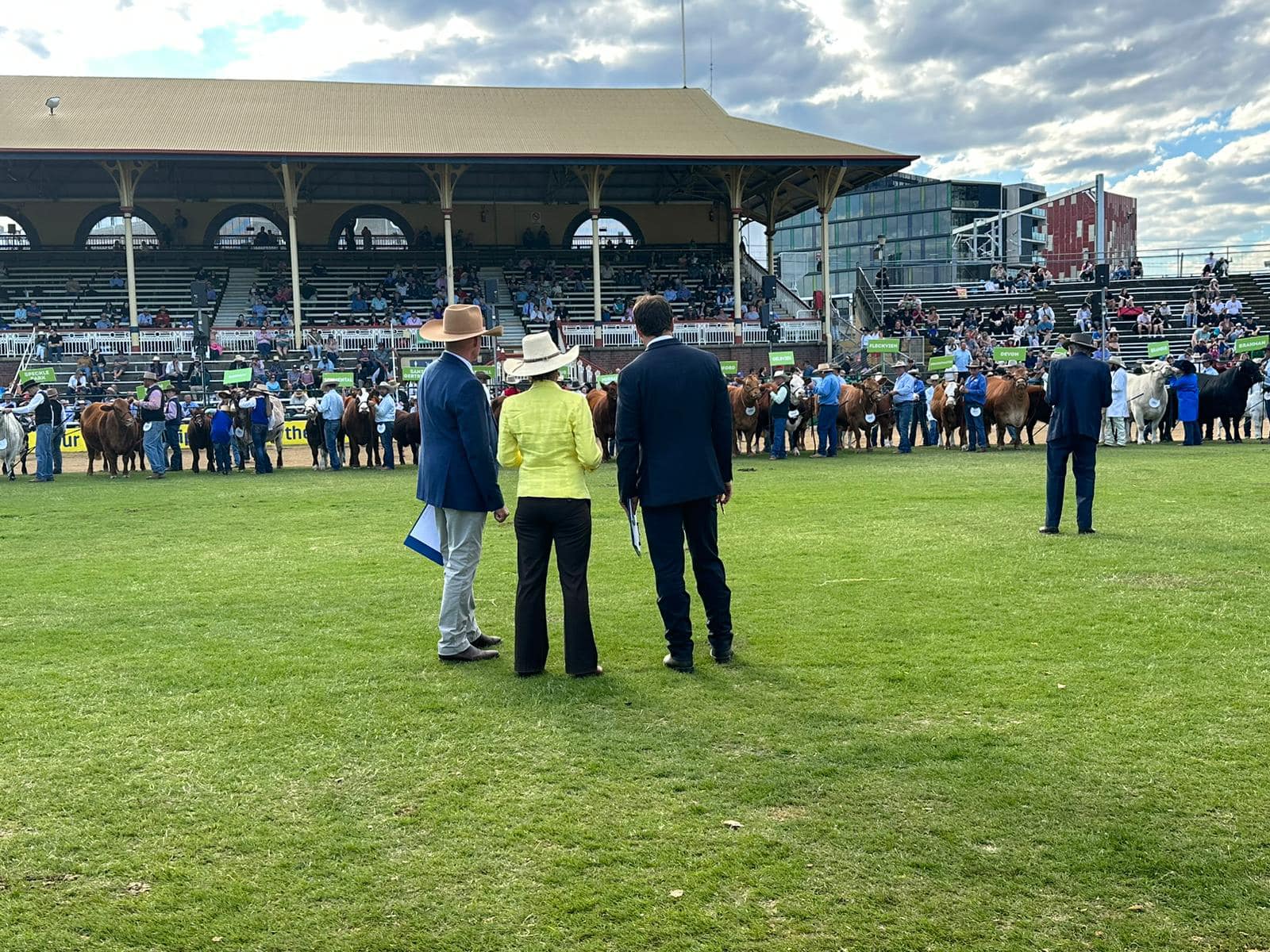
Ekka 2023: International stud cattle judge gives his views on the show industry
Article sources from Judith Maizey, Queensland Country Life. Image sourced from PJ Budler
International stud cattle judge PJ Budler believes the show industry in many parts of the world is “divorced” from the commercial cattle sector and runs the risk of turning cattle into “circus animals”.
A guest judge at the Royal Queensland Show’s stud beef cattle for the Fleckvieh and interbreed competitions, Mr Budler was raised on a 5th generation cattle, sheep and goat operation in South Africa.
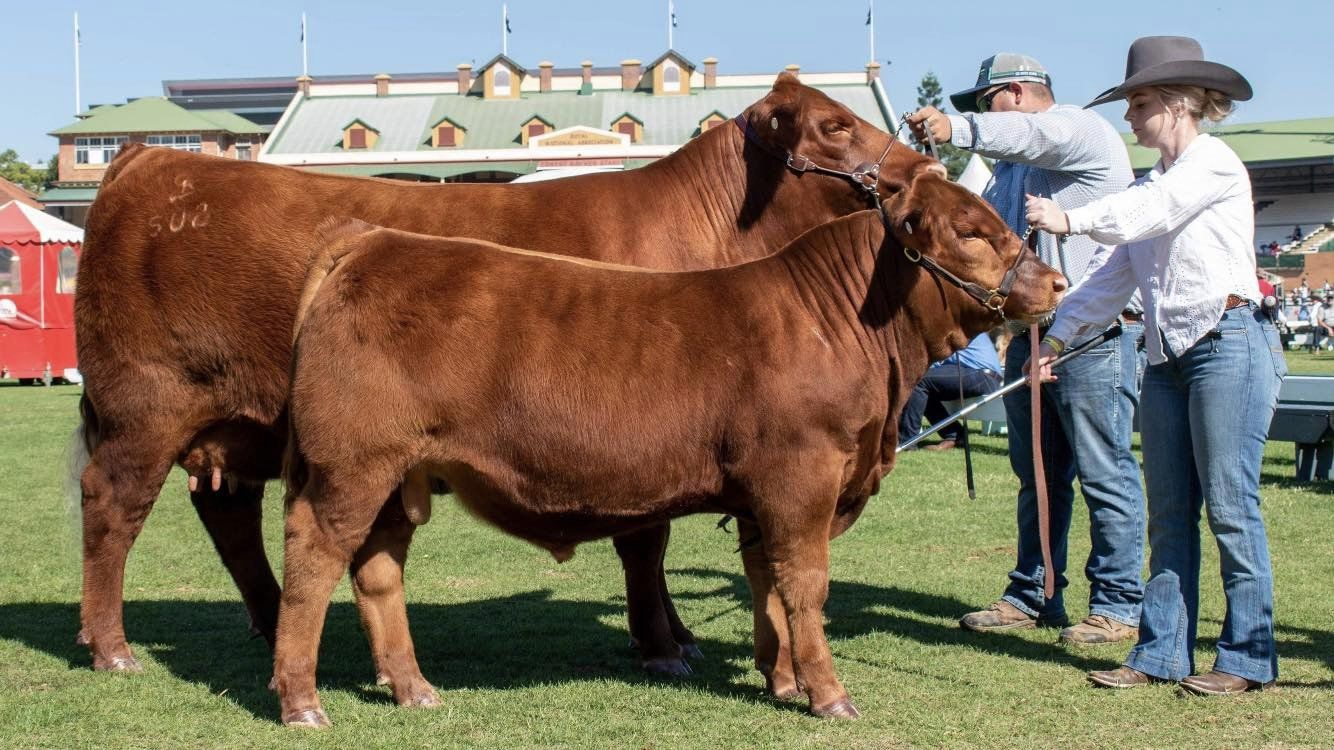
In 2012, he moved to Fort Worth, Texas, where he started work for global company, Trans Ova Genetics, which was recently bought out by Urus, the largest cattle genetics company in the world.
In the past 10 years, Mr Budler has travelled to 106 countries and, following the Ekka competition, will have judged 92 breeds in 43 countries on every continent.
When asked about what he looks for as a stud cattle judge, Mr Budler said he focused on the traits that were profit drivers such as fertility, longevity, functional efficiency and adaptability.
“It’s not that I don’t look for muscle…and marbling, it’s just that those traits are irrelevant if we don’t first lay the foundations of the fundamental traits,” he said.
“We all want muscle, but we don’t want it at the expense of hormonal balance or skeletal structure or athleticism or adaptability to your environment.
“Where I think a lot of industries (cattle breeds) run into problems is where they have this prototype in mind that they think works anywhere, but it’s not necessarily adapted to the climate, to the cattle culture or to the market.
“You have to do that fundamental, less sexy work first before you start building on all the traits that everyone markets.”
Mr Budler said there had been a divorce between the commercial cattle and show industries in recent decades.
“I think we can have industry appropriate, functioning efficient cattle in the show ring and that would be my advice (to Australian stud breeders) – to keep it real, to keep them sound and keep them industry relevant otherwise they will eventually be like circus animals that come out and entertain people, but have no value in the industry,” he said.
“What keeps Australia more on the straight and narrow is the fact that there aren’t too many (stud cattle) shows (here).
“For example, in Texas, there’s a show every weekend – if you really want to show cattle, you can go to 40 shows a year, but that produces an animal that is not industry relevant.”
Mr Budler cited the case of a good show heifer which is “done” after three shows.
He said these specialist show cattle end up being completely different to what would thrive and be profitable and productive in a commercial operation.
Luckily, in Australia, where there were not many stud shows, Mr Budler believes breeders are not guilty of that situation
“It’s not like a circus, it’s not every weekend,” he said.
As to what breed of cattle that Mr Budler prefers, the veteran judge was considered in his response pointing out that when he was in South Africa he had five different breeds – Brahman, Braford, Angus, Hereford and Red Angus.

Image sourced from Judith Maizey
“When I started out, I was a Hereford guy. I thought everything needed a white face, but you soon learn that there’s certain environments that Herefords thrive in and there’s certain ones that they really don’t …and I think that applies to all breeds,” he said.
“I like good cattle. I like functioning efficient cattle that are adapted to their environment and I don’t mind what breed they are – I’m not too dogmatic about breeds.”
Mr Budler said he saw himself, in the future, being part of the process of increasing the global initiative of bringing all the cattle breed industries closer together.
“I think if you take just where I have been in the last month… Argentina and the US and then some of the European countries, Australia and South Africa…there’s not a lot of communication between those industries, they’re quite balkanised and I think there’s value in bringing them together from a trade perspective,” he said.
“But, also sharing ideas and sharing experiences, there’s got to be value in that, I think our industry needs to get to know each other.”

